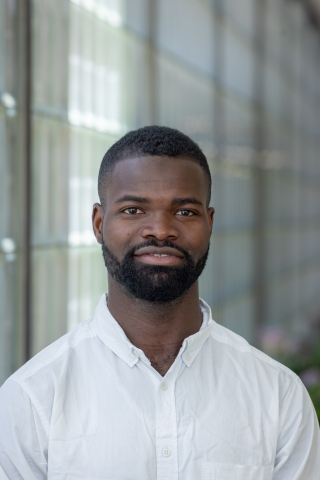There’s more to lightning than the quick flashes of light we see in the sky, just like there’s more to Mouayid Yessoufou, ARCS Colorado Chapter Scholar, who created a smart software tool to automatically detect special radio waves called spherics.
While studying to receive his bachelor’s degree in electrical engineering at the University of Colorado, Denver, Yessoufou took advantage of his passion for machine learning to create this software tool for his class project. He says, “This project provided an opportunity to explore the intersection of radio wave phenomena in advanced data analysis techniques,” he says. “I dedicated my effort to understanding and harnessing the power of machine learning to identify this particular special radio wave.”
Spherics are produced by lightning strikes around the world and create electromagnetic wave energy bursts that play a crucial role for space and communication researchers. Yessoufou explains,” Spherics provide valuable insight into the behavior of radio waves in the lower atmosphere.” This data can help optimize communications systems to minimize unwanted noises and interferences.
Studying and detecting spherics also provide additional data to space researchers as Yessoufou explains, “Researchers can gain valuable information about the lightning distribution: the frequency, the intensity, and how they contribute to our understanding of atmospheric phenomena, such as weather.”
Overall, the knowledge gained by studying spherics will make communication systems better as they track lightning in real-time and can have less interference from lightning strikes. “It’s a way to make life easier compared to how they traditionally detect lightning,” shares Yessoufou.
While working in the space field isn’t Yessoufou’s true passion, he can translate the skills he learned from creating his software and combine them with his passion for machine learning. “The beauty of machine learning is its versatility,” he shares, “My goal would be to take this technology beyond its scope and integrate it with ground-based magnetic sensors on a broader scale.”
For Yessoufou, this means going straight into his PhD after graduating with his bachelor’s degree in May 2024. He plans to study microelectronics and work on creating microchips to help people with brain or spinal cord injuries who deal with paralysis. “One day, we might be able to implant microchips into people’s brains so they can still think and use their neurons to control their limbs again,” says Yessoufou. He hopes his work in cutting-edge microchip design will revolutionize healthcare so paralyzed people won’t remain paralyzed for the rest of their lives.
While grateful for the financial aid Yessoufou received from the Scholar Award, he also values the ARCS community he has inherited with the award. “Being a recipient has connected me with a bigger community of like-minded individuals who show commitment to advancing scientific knowledge,” he says.
To Yessoufou, ARCS means opportunity. He explains, “It’s an opportunity to unlock doors in my academic journey, an opportunity to network or collaborate with like-minded people, to research and contribute to my field, and a sense of belonging to be part of this community.”

